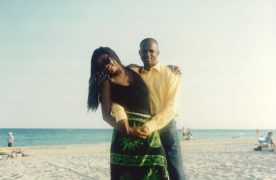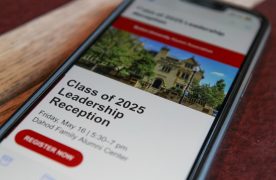In eighth grade, I auditioned for the school musical. And I’m still convinced it was the most overwhelming — most distinctly terrifying — moment of my life. I stood in front of my music teacher, the director of the musical and the high school junior who was assisting them. They had the privilege of sitting down and were staring up at me with intimidating anticipation. I sang “Tomorrow,” from “Annie” — a choice so original that almost two-thirds of the other eighth graders also chose it. I swear the high schooler helping out was visibly cringing. I can’t say I blame her.
I wasn’t embarrassed or upset or anything after. The utter, profound sense of relief that washed over me prevented me from being disappointed. I ended up being cast as Daisy 1 in “Alice in Wonderland,” the smallest possible part they could appoint an eighth grader. Considering I was the only Daisy in the show, the “1” part of this title remains a mystery. I had two punchy lines and a solo they later removed from the script (for obvious reasons).
There’s something to be said about “showing up.” Simply showing up. No, I am not a good singer, and no, I did not get a big part in the musical, but I guess I have to be proud of myself for going through with that audition. Even if it did consist of me sing-screeching in front of an audience. Most often, we don’t give ourselves credit for participating.
We tend to get so caught up with being the best that doing anything less is considered irrelevant. However, getting consumed with perfection might cause one to develop a misconceived understanding that it’s not worth their time to pursue anything they’re not good at. Someone may feel discouraged in a drawing class because the person next to them has more experience. Or maybe an athlete assumes that their inability to make a 3-pointer makes them inferior. Perhaps my own lack of confidence in my singing abilities made me imagine that high school junior to be cringing at my rendition of “Tomorrow.” As a result, one might give up, believe they’re not good enough or crush the enjoyment they once found in the activity. We don’t give ourselves enough credit.
In general, people tend to get easily discouraged. They feel insignificant if they don’t know something and assume that asking for help is an acknowledgment of weakness. This is a dangerous mindset that stigmatizes questioning and causes people to unfairly compare themselves to others. Asking for help becomes proof of gaps in knowledge, and mistakes are evidence of incompetency. No wonder people get so easily discouraged. They are subconsciously trapped in the belief that talent and perfection are the only real forms of accomplishment.
Instead, letting go of the constant pressure to succeed can allow us to see the value in the slow process of learning. Simply showing up is an accomplishment in itself. And that doesn’t mean we should be whipping out participation trophies for those who attend a club meaning. Rather, it’s something you can be individually proud of. Because by showing up, you’re proving that you care enough to be there — at least on some level. By showing up, you’re giving yourself the opportunity to learn something without putting yourself in a pressure cooker of unrealistic expectations.
Of course, “showing up” needs to come with active effort. This can be something as simple as listening to a presentation or participating in an activity. Simply acknowledging that you have something to learn at an event leads to increased skill and well-rounded success. It is a relief to discover that you don’t have to know everything right away. Once you accept that you have a lot to learn from those around you, and that no one can achieve perfection immediately, you can start to experience real success. You can start to let go of comparisons to others and improve because you worked hard enough to do so. Because you were present in the situation. Because you showed up.
I showed up to the eighth grade auditions knowing full-well I was a terrible singer. Even still, I walked in there with semi-memorized “Annie” lyrics and walked out with two, non-essential lines in the play. Maybe that high schooler cringed. Maybe she didn’t. Either way, I showed up. And today, that’s enough for me.













